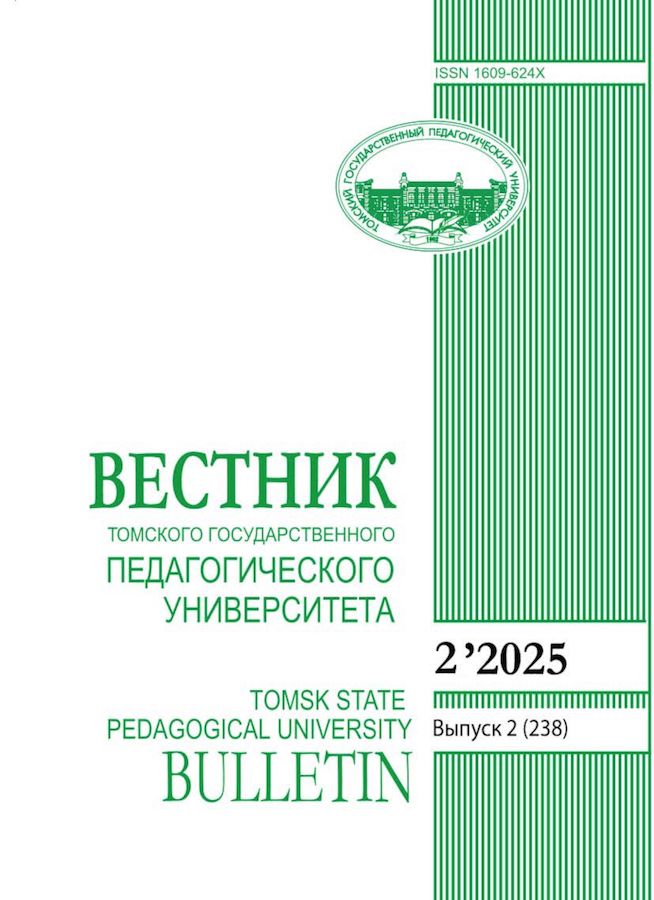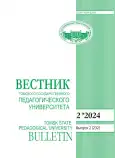Academic cheating online during COVID-19 (studying a foreign language as a case study)
- Authors: Kozarenko O.M.1, Tardif M.2, Egorova L.A.3
-
Affiliations:
- Рeoples’ Friendship University of Russia (RUDN University)
- Université de Montréal
- Peoples’ Friendship University of Russia (RUDN University)
- Issue: No 2 (2024)
- Pages: 110-120
- Section: FOREIGN LANGUAGE TEACHING
- URL: https://journal-vniispk.ru/1609-624X/article/view/268850
- DOI: https://doi.org/10.23951/1609-624X-2024-2-110-120
- ID: 268850
Cite item
Full Text
Abstract
The online academic cheating (OAC) is widely discussed in academic circles of different countries. The present study was conducted after the second COVID-19 wave and therefore reflects the process of mass transition to online learning, which contributes to the originality of the research. The specificity of methodological approach is comparing the opinions of teachers and students, a total of 488 respondents answering online questionnaires. According to the data obtained, from 70 to 80 % of students resort to OAC. As a rule, students tend to use lecture and lesson materials for copying and peeking, contrary to the teachers’ perception of the use of electronic media. On detecting the deception, 57 % of teachers just admonish students, 39% deduct marks. One third of students believe that teachers tend to overlook fraud. Students report resorting to deception because of lack of confidence in their knowledge. Teachers believe that the reason lies in insufficient preparation for classes. From 50 to 70 % of respondents think that such forms of assessment as a spontaneous answer, free-source research and project work reduce cheating. According to students, individual creative tasks can be added to this list. The most important factor reducing cheating is intrinsic motivation (50-60% of students and teachers). Among the measures proposed by students to combat academic fraud, didactic methods are given the highest priority as well as students’ initiatives like the movement in social networks #iliketobehonest, whose icon is shown on a student’s screen in an online activity reflecting a conscious decision made by the student.
About the authors
Olga Mikhaylovna Kozarenko
Рeoples’ Friendship University of Russia (RUDN University)
Author for correspondence.
Email: kozarenko-om@rudn.ru
Moscow, Russian Federation
Maurice Tardif
Université de Montréal
Email: maurice.tardif@umontreal.ca
Montréal, Canada
Liudmila Alekseevna Egorova
Peoples’ Friendship University of Russia (RUDN University)
Email: egorova-la@rudn.ru
Moscow, Russian Federation
References
- Starovoytova D., Arimi M. Witnessing of Cheating-in-Exams Behavior and Factors Sustaining Integrity // Journal of Education and Practice. 2017. Т. 8, №. 10. P. 127–141.
- Cizek G. J., Cizek G. J. Detecting and preventing classroom cheating: Promoting integrity in assessment. Corwin Press, 2003. 168 p.
- Hard S. F., Conway J. M., Moran A. C. Faculty and college student beliefs about the frequency of student academic misconduct // The Journal of Higher Education. 2006. Т. 77, № 6. С. 1058–1080.
- Audet L. Les pratiques et défis de l’évaluation en ligne. Document préparé pour le Réseau d’enseignement francophone à distance du Canada. 2011. URL: https://archives.refad.ca/evaluation_en_ligne.pdf (дата обращения: 5.02.2023).
- Hughes J. M. C., McCabe D. L. Academic misconduct within higher education in Canada // Canadian Journal of Higher Education. 2006. Т. 36, № 2. P. 1–21.
- Шмелева Е. Д. Академическое мошенничество среди студентов российских вузов: масштаб и факторы: автореф. дис. … канд. наук об образовании. М., 2021. 75 с.
- Chirikov I. The mystery of Russian students: Poor learning experience, high satisfaction // Higher Education in Russia and Beyond. 2015. Т. 1, № 3. P. 10–11.
- Титаев К. Д. Академический сговор // Отечественные записки. 2012. № 2. С. 184–194.
- Фрумин И. Д., Добрякова М. С. Что заставляет меняться российские вузы: договор о невовлеченности // Вопросы образования. 2012. № 2. С. 159–191.
- Orosz G. et al. Teacher enthusiasm: a potential cure of academic cheating // Frontiers in psychology. 2015. Т. 6. P. 318.
- Pabian P. Why ‘cheating’research is wrong: New departures for the study of student copying in higher education // Higher Education. 2015. Т. 69. P. 809–821.
- Дремова О. В., Малошонок Н. Г., Терентьев Е. А. В поисках справедливости в университете: критика и оправдание практик академического мошенничества студентами // Мониторинг общественного мнения: экономические и социальные перемены. 2020. № 4 (158). С. 366–394.
- Sutherland-Smith W. Crime and punishment: An analysis of university plagiarism policies. 2011 // Semiotica. 2011. Vol. 2011, № 187. P. 127–139.
- Jones D. L. R. Academic dishonesty: Are more students cheating? // Business Communication Quarterly. 2011. Т. 74, № 2. P. 141–150.
- Higbee J. L., Thomas P. V. Student and faculty perceptions of behaviors that constitute cheating // NASPA journal. 2002. Т. 40, № 1. P. 39–52.
- O’Neill H. M., Pfeiffer C. A. The impact of honour codes and perceptions of cheating on academic cheating behaviours, especially for MBA bound undergraduates // Accounting Education. 2012. Т. 21, № 3. P. 231–245.
- Corrigan-Gibbs H. et al. Measuring and maximizing the effectiveness of honor codes in online courses // Proceedings of the second (2015) ACM conference on learning@ scale. 2015. P. 223–228.
- Шмелева Е. Д. Плагиат и списывание в российских вузах: роль образовательной среды и индивидуальных характеристик студента // Вопросы образования. 2016. № 1. P. 84–109.
- Chirikov I., Shmeleva E., Loyalka P. The role of faculty in reducing academic dishonesty among engineering students // Studies in Higher Education. 2020. Т. 45. №. 12. P. 2464–2480.
- Рочев К. В., Коршунов Г. В. Формирование конкурентной среды в студенческом коллективе для повышения учебной и внеучебной активности // Азимут научных исследований: экономика и управление. 2016. Т. 5, № 1 (14). С. 40–42.
- Kozarenko O. M., Starostenko A. S. The reasons and features for a language barrier among students in the process of learning a second foreign language // Functional aspects of intercultural communication. Translation and interpreting issues. 2020. P. 546–555.
Supplementary files







